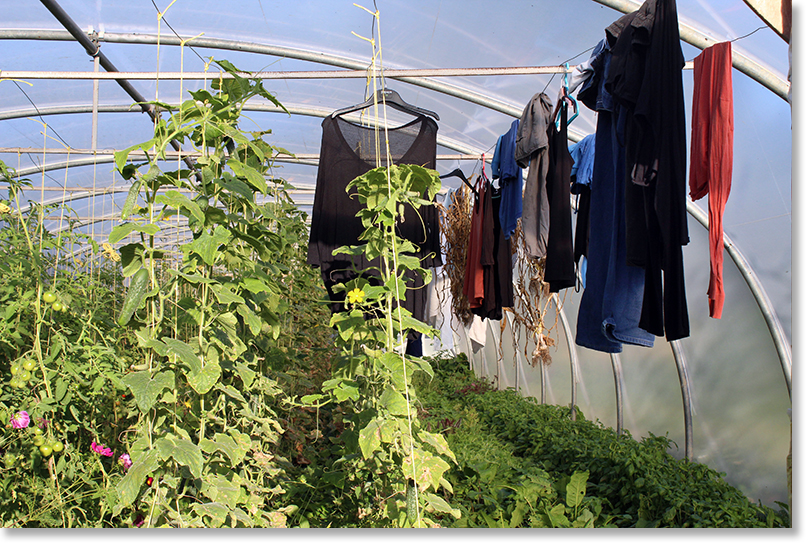|
Interview with Adam Payne
of the Landworkers’ Alliance
Change in Rural Culture, Small Farms, and Hedgerows
West Dorset, England
 |
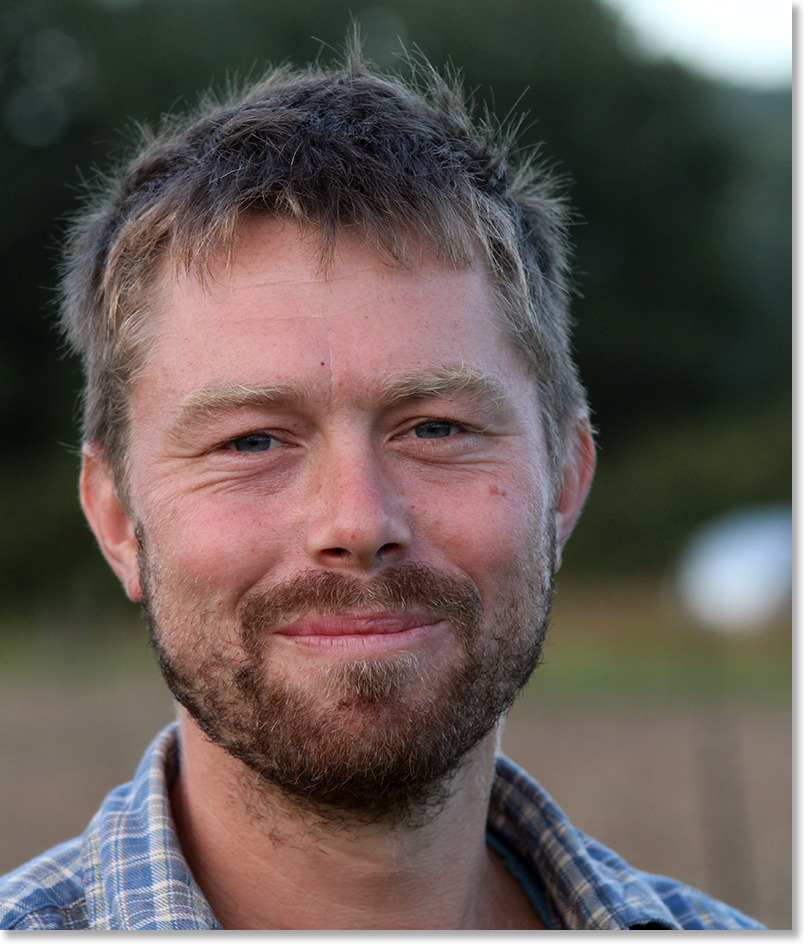 |
|
Adam Payne on the land he farms in west Dorset, England. All photos by Nic Paget-Clarke.
|
|
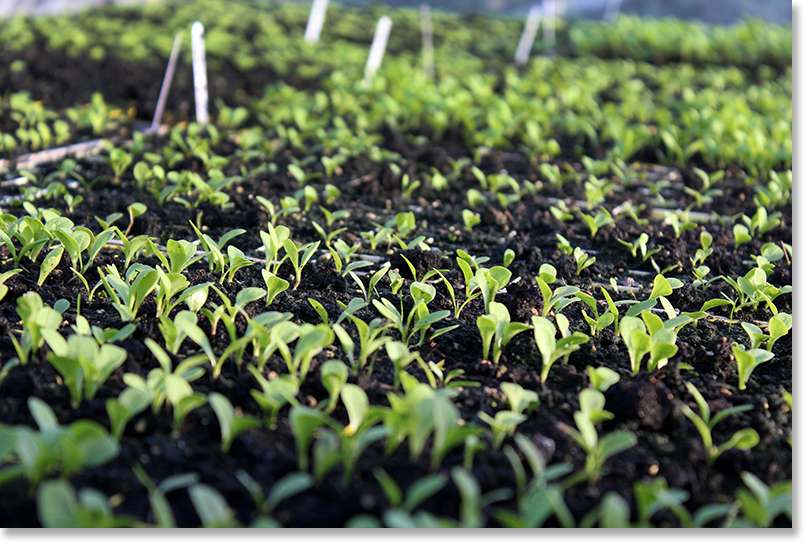 |
|
Seedlings for the various vegetable crops.
|
|
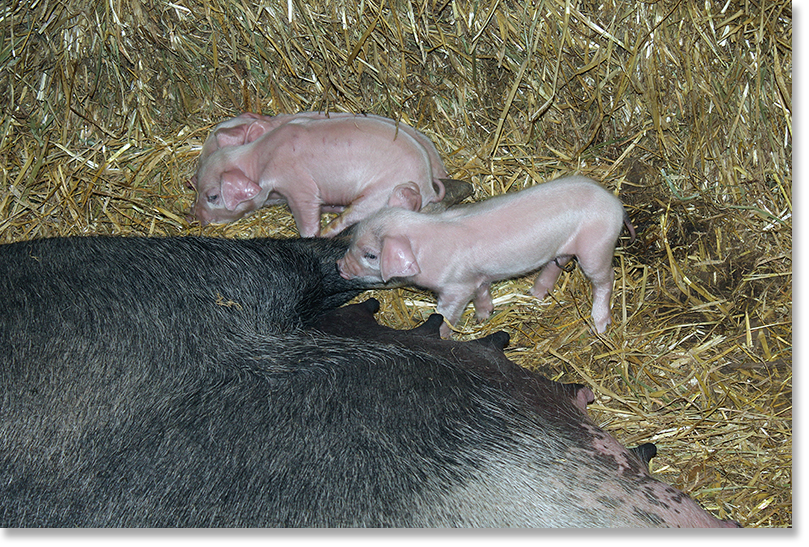 |
|
Three two-day-old piglets with their mother. West Dorset, England.
|
|
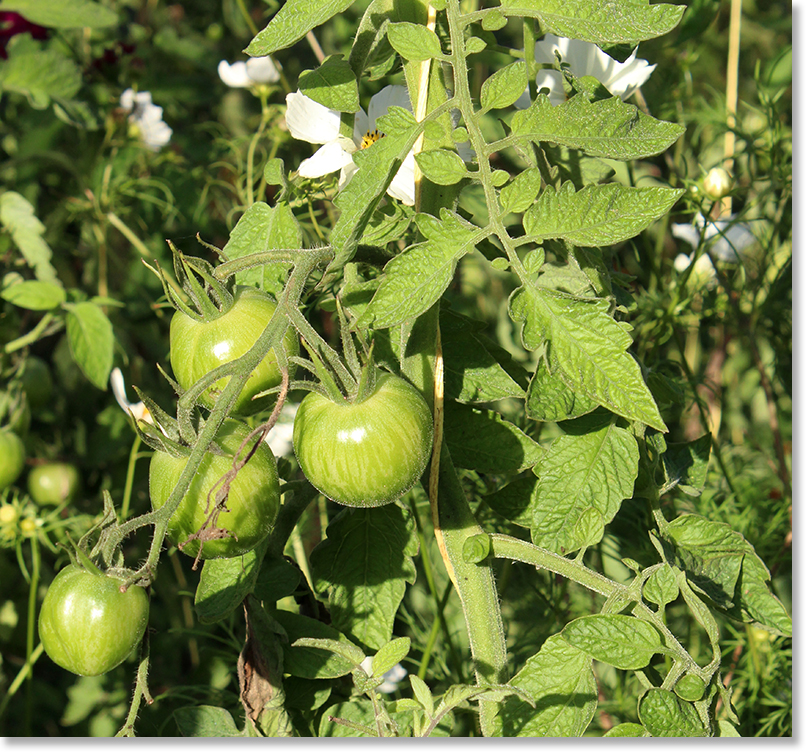 |
|
Cultivating tomatoes in a polytunnel. West Dorset, England.
|
|
|
|
Taking advantage of the warmth and light inside a polytunnel on Adam Payne's farm.
|
|
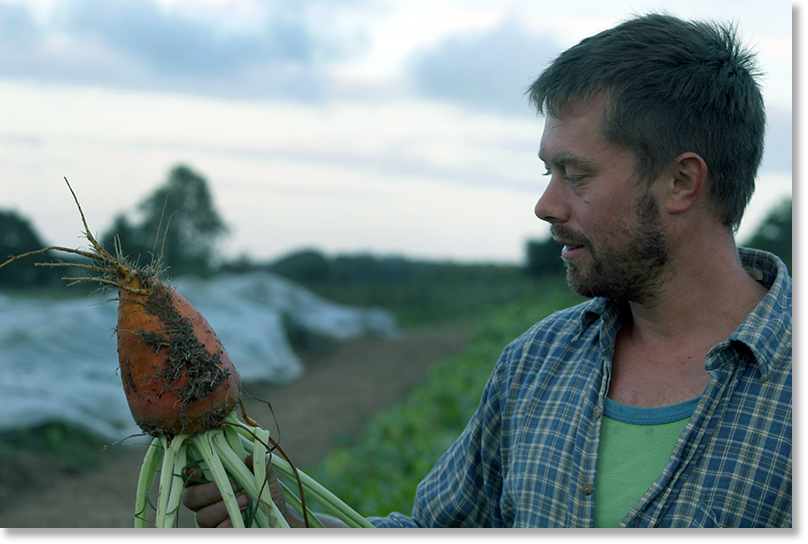 |
|
As the sun began to set, Adam Payne with a fodder beet he has just pulled from the earth. After the photo was taken, he threw it to the pigs.
ß |
|
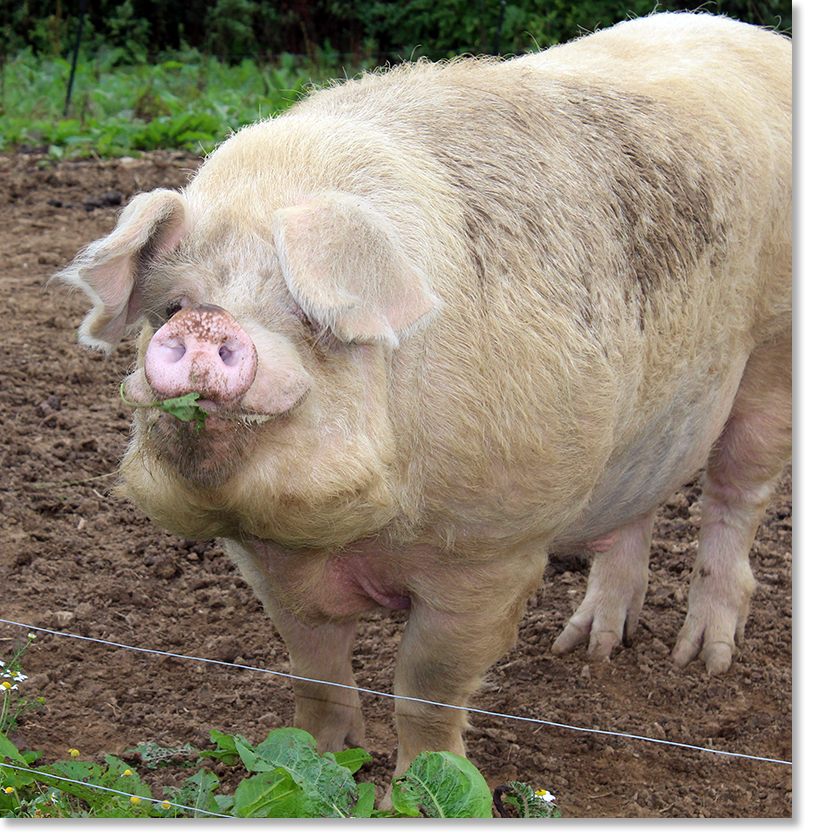 |
|
One of the large pigs on Adam Payne's farm.
|
|
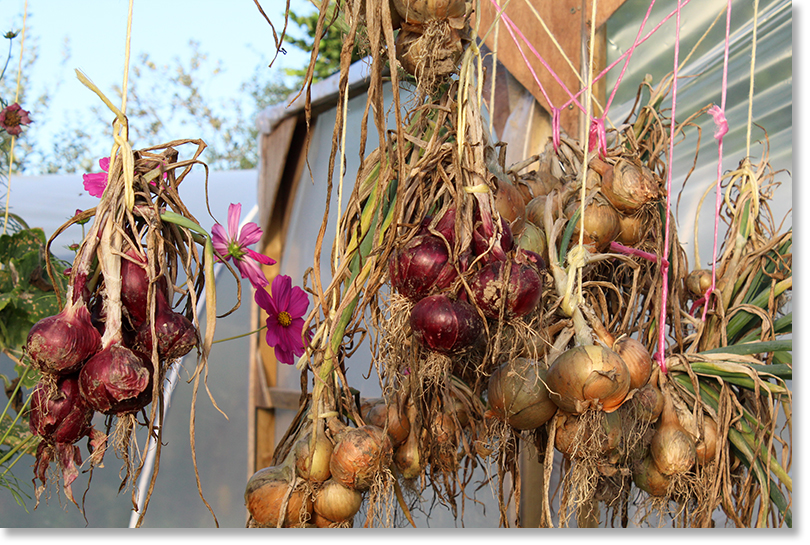 |
|
Onions drying in a polytunnel.
|
|
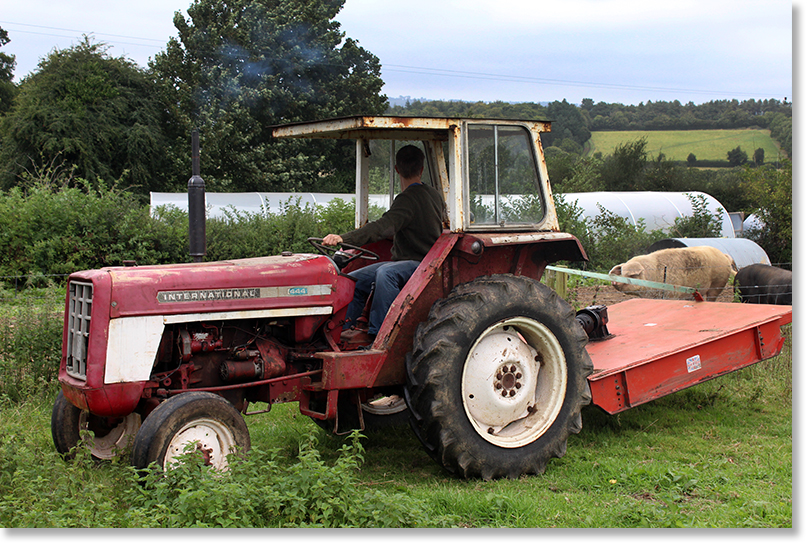 |
|
Adam Payne maneuvers the tractor before putting it into the barn out of the weather.
|
|
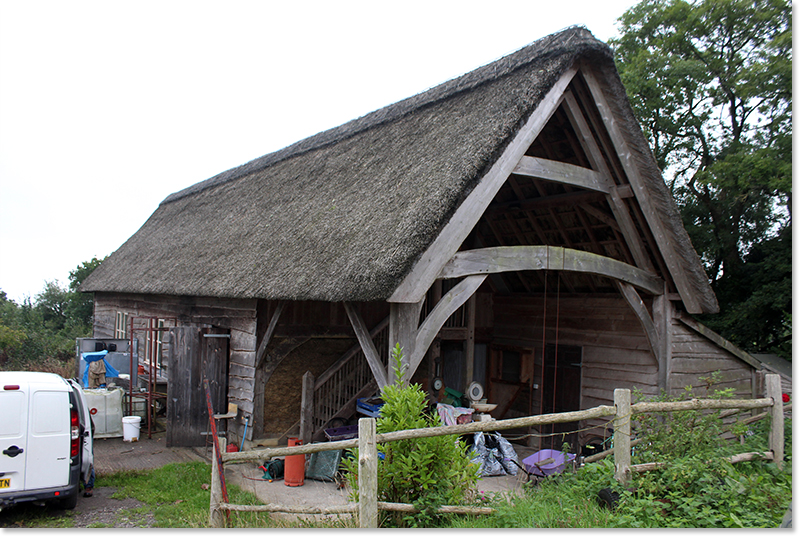 |
|
The collective processing barn of the Peasant Evolution Producers Cooperative (PEPC) in west Dorset, England.
|
|
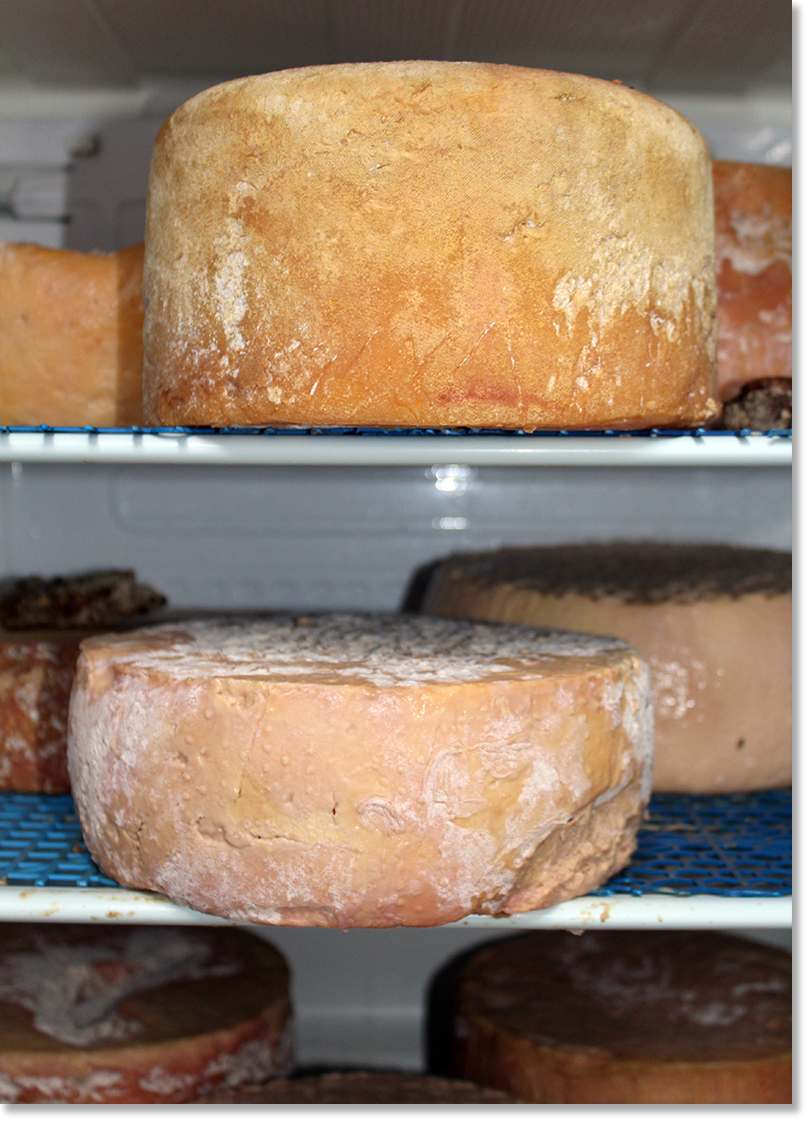 |
|
Cheese ripens (matures) in the PEPC collective processing barn.
|
|
 |
|
After rainfall, a rose rests on a fence in front of the PEPC processing barn.
|
|
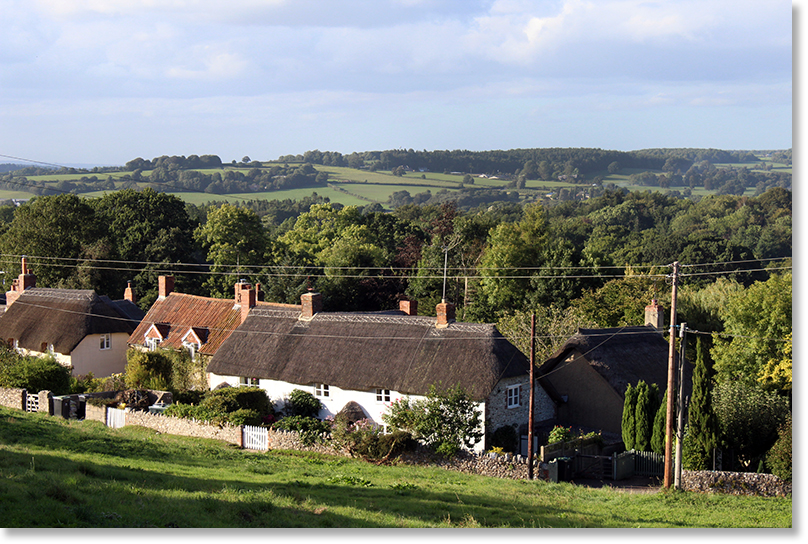 |
|
Homes in rural west Dorset.
|
|
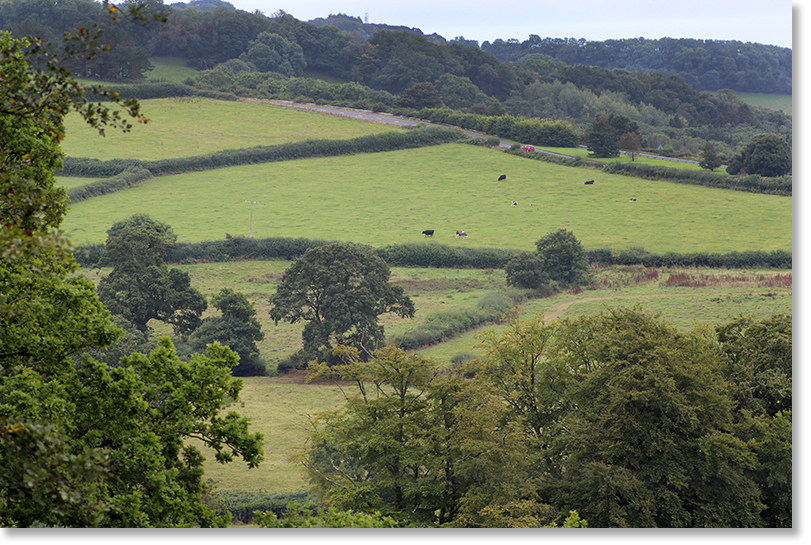 |
|
Hedgerows separate fields to facilitate different agricultural uses in west Dorset.
|
|
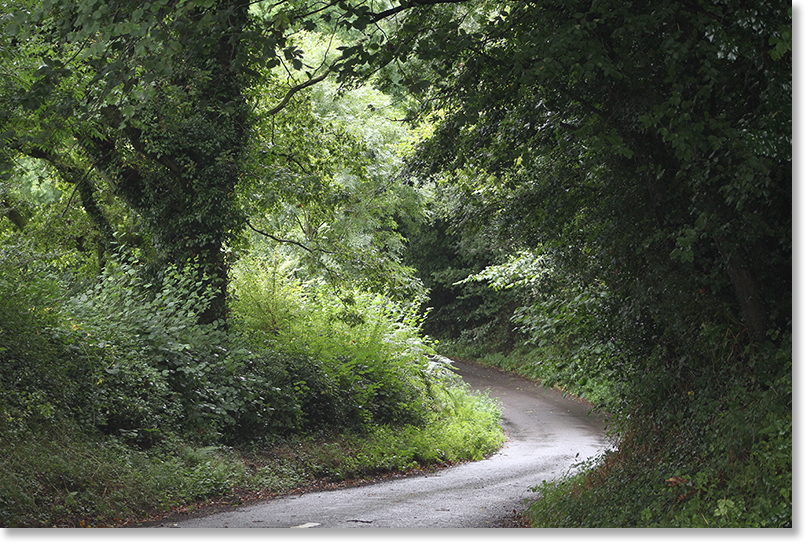 |
|
Hedgerows border a narrow road in west Dorset.
|
|
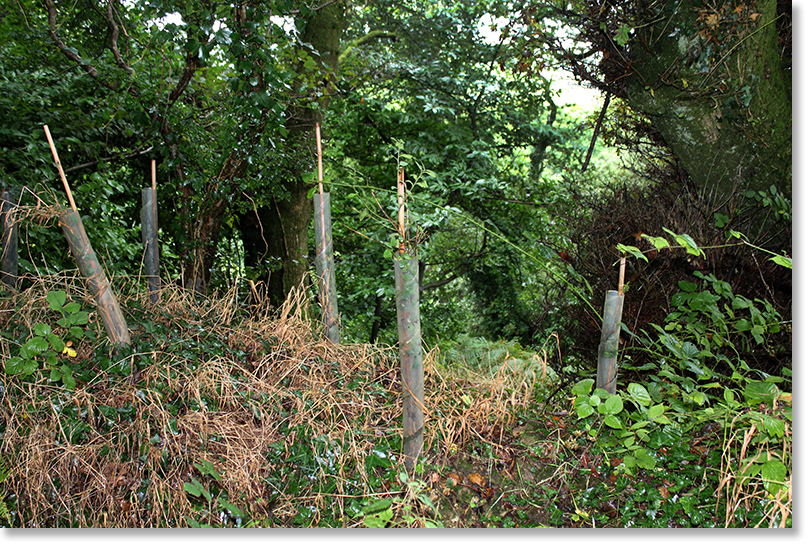 |
|
Training shoots up as part of a (potentially) centuries-long process of building a hedgerow.
|
|
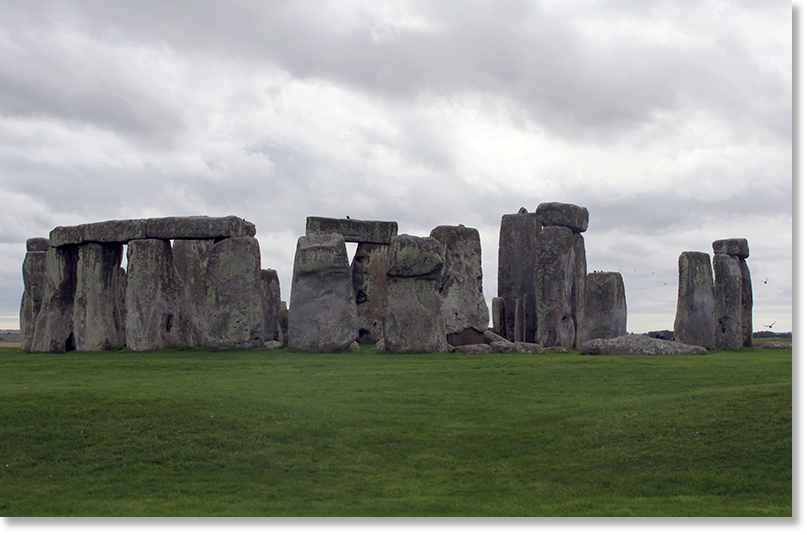 |
|
Stonehenge - created 4,000 years ago by people in what is now the county of Wiltshire - a neigboring county to Dorset.
|
|
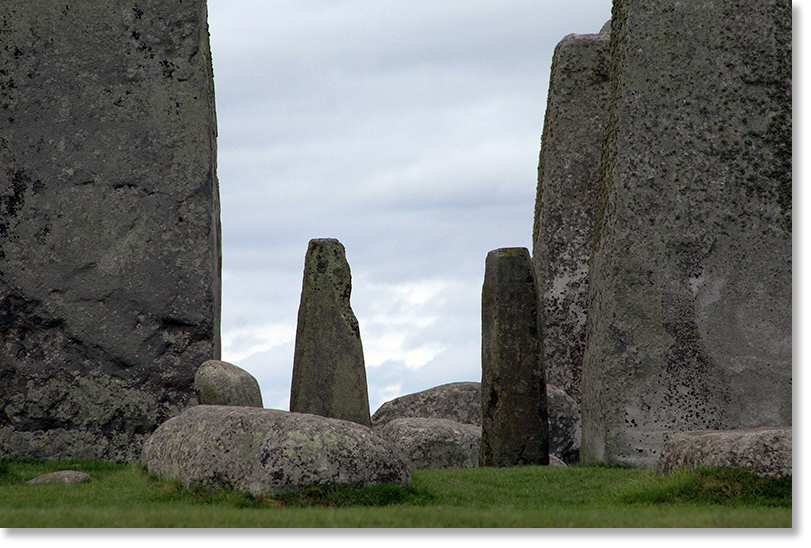 |
|
Stonehenge.
|
|
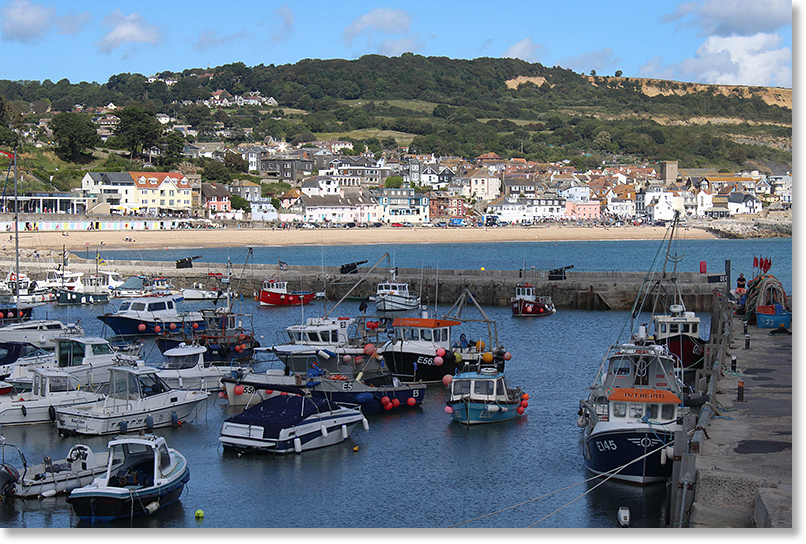 |
|
Lyme Regis, on the coast of west Dorset, England.
|
|
|
Adam Payne is, “a farmer and grower and a member of the Landworkers’ Alliance, which is a UK (United Kingdom of Great Britain and Northern Ireland) organization of small-scale farmers and growers, also affiliated with Vía Campesina, the international peasant and farmers movement. I farm down here in west Dorset. We produce pigs, sheep and vegetables on a forty-five-acre mixed farm. It is organically certified, producing in an organic framework.”
This interview was conducted (and later edited) by Nic Paget-Clarke for In Motion Magazine on September 10, 2016 in Adam Payne’s home on the land he farms in west Dorset, in southwest England.
Quick Links:
- Part 1: The Farmer’s Way of Thinking
- Part 2: Producing a Livelihood from Your Work
- Part 3: Export Logic, Land Ownership and Brexit
- Part 4: Rural Culture Is Changing
- Part 5: A Basic Element of Autonomy
- Part 6: A System of Seed Governance
- Part 7: Access to the Land and Re-Localizing Production
- Part 8: What to Grow, Landscapes, and Hedgerows
Part 1:
The Farmer’s Way of Thinking
Making a livelihood in farming
In Motion Magazine: Do you come from a farming family?
Adam Payne: Somewhat. My parents were smallholders. They both work part-time in medicine, rural doctors, in north Devon. They are not that far from here. They had pigs and a house cow, and goats, and vegetables, fruit. They weren’t commercially involved with farming, but they produced a lot and traded with friends.
So, I didn’t grow up on a farm but I grew up on a small-holding surrounded by farms. My fondest childhood memories are often helping the neighbors, neighboring farmers.
In Motion Magazine: What made you decide to farm fulltime?
Adam Payne: I studied. I studied social anthropology. And for a while I thought about being a journalist or an academic or in some way involved in anthropology. But actually, I realized that what I really wanted to be doing was farming.
In Motion Magazine: And how long have you been doing it?
Adam Payne: I think it’s five years now. When I graduated from university, I spent a bit of time travelling, visiting other farms. And then I did an apprenticeship with OrganicLea which is a workers’ cooperative who manage a market garden on the edge of London. I did a production trainingship there and then started working with the cooperative and that was my start at making a livelihood in farming.
< Landworkers’ Alliance >
In Motion Magazine: Do you want to talk a little bit about the Landworkers’ Alliance? Were you involved in the start, or you came along?
Adam Payne: I was involved in the start. It is quite a young organization. The Landworkers’ Alliance has been formally existing for four years, since 2012. It is a producer’s organization – a union of small-scale food, fuel, and fiber producers. It is national. We have members around the UK. It is very much a grassroots union.
At the moment, we don’t really have offices. We don’t have much in the way of paid staff. We work on three main levels. The first is the grassroots skill-sharing exchanges, collective knowledge building. We organize a lot of farm tours and skill-share events on different topics. For example, a couple of years ago we organized a big gathering around home-made farm machinery and equipment and developed a bit of work-sharing there -- innovative tools for small-scale production that people have come up with. We also do similar things around, for example, seed – seed-saving for vegetable growers.
There’s a solidarity, mutual aid element, and then there’s an advocacy element which is trying to challenge the public perception of small farms as inefficient or backwards or in some other way undesirable. (This) is necessary because there has been a massive amount of propaganda from the industrial food producers in the UK.
And the third strand is the political lobbying and campaigning – trying to actually change policy in areas where policy works against the interests of small-scale producers. We came about because there has been a large historical gap. There was no organization playing that role of national-level political representation.
There was no union of the smaller farmers and that had been the case for quite a long time in the UK. Things had become quite polarized between the National Farmers Union which, while it claims to represent farmers of all sizes, it actually in the end takes a very agribusiness position on things. It tends to be very influenced by its bigger, wealthier members and often ends up pushing for policy which is quite against the best interests of a lot of the membership. Various people were pretty annoyed with that; various farmers were very frustrated with that situation.
The creation of the movement
There were a few significant events which catalyzed the creation of the movement. One of which was a trial of GM (genetically-modified) spring wheat at an agricultural research station in the UK – Rothamsted Research.
There was a big public campaign against this GM trial which was funded with public money at a very traditional, very respected research station trying to develop aphid resistance in a crop which very few farmers grow. And very few farmers have an aphid problem. There was a big public mobilization, and as part of that ... there was a public action to destroy the crop and three farmers had injunctions placed against them which threatened to compensate any damage to the crop with their farms. (Of the) three people, two were founding members of the Landworkers’ Alliance. There was a real sense that there was massive persecution of any kind of resistance and there wasn’t an organized farmers body to speak against it.
In Motion Magazine: Were you one of those two?
Adam Payne: I wasn’t one of those two. But I was involved in the protest. Jyoti, who you met today, was one of those two. Or you didn’t meet today, but were going to. And another guy called Gerald, in Wales.
There were a few instances where we felt there was a massive lack of an organized political voice speaking for the interests of the small farmer. And that was costing us dearly. So, based on that momentum, we organized and started off this little union.
In Motion Magazine: How many members does it have?
Adam Payne: At the moment, it’s got about 600, 650 (at time of publishing up to 800). It’s growing quite quickly without much resources put into recruitment.
In Motion Magazine: Are those members or farms?
Adam Payne: Members. But most relate to a farm, so usually a farm is a member. A member would be a family but some of those members are cooperatives or community organizations which are 12 or 15 people, or whatever.
We define a small farm by a set of values
In Motion Magazine: How many smallholders are there in the United Kingdom?
Adam Payne: There are various figures out there but actually they are hard to work with. We know that in the last round of the (European Union’s) Common Agricultural Policy (CAP) reform, DEFRA, the (U.K’s) Department of Environmental and Rural Affairs, cut any public funding to any farm smaller than five hectares, which at that time meant cutting funding to 16,000 farms. But at the same time, not all small farms are registered with DEFRA because the amount of funding they were getting was very small anyway. So, significantly more small farms were under five hectares.
I’d say there are 218,000 farm businesses in the UK, and half of them have less than 20ha. But we choose not to define a small farm just in terms of land because the history of agriculture in the UK means that what is small for a certain area, a certain region, or a certain type of production, can be massive for another one.
A five-hectare vegetable farm is pretty big, but a five-hectare upland sheep farm is almost non-existent, tiny. So, instead of defining small by acreage we define a small farm by a set of values around how the farm produces, how the farm distributes its products, how the farm engages with the local community, and with the local ecology. For us, a small farm is a farm that is tied in multiple and intimate ways to the environment in which it produces.
In Motion Magazine: So, the majority?
Adam Payne: Yes, definitely the majority. But for us, it’s about positioning ourselves. Distinguishing the small farm from the industrial farm. And that’s very much a question of logic – the farmer’s way of thinking about what they are doing.
In Motion Magazine: You say logic?
Adam Payne: Yes, logic or ethics. Both I suppose.
The UK has the second biggest average farm size in Europe but at the same time we have one of the highest amount of pasture grassland, and grassland farms tend to be larger, to be less intensive. As an example, one of our members farms about 600 acres, so that’s an incredibly species-rich, low-nutrient grassland, and they farm an amazing range of old cattle and sheep breeds and a little bit of cereal. They farm it very much in a small farm way, in a peasant way.
Part 2: Producing a Livelihood from Your Work
The Peasant Evolution Producers Cooperative
In Motion Magazine: Can you talk about the cooperative you are a member of?
Adam Payne: It’s a local cooperative in east Devon and west Dorset called PEPC, the Peasant Evolution Producers Cooperative. That’s a cooperative that has maybe fifty members, something like that. It’s a cooperative that was formed by producers who came together to build on some of the benefits that we achieve through cooperating.
Its main achievements have been to create a collective processing barn. For small producers, often, a real obstacle to producing a livelihood from your work is access to a processing space – adding value to your processing. It’s expensive to get the kind of equipment you need to do it on a scale that makes it worthwhile. That’s still very much a small scale, but there’s a few machines that really help. Also, the health and hygiene can be a real obstacle to doing it on a farm.
By working together, we managed to get some funding to create a barn that has a certified meat-processing room with a vacuum packer with a meat slicer, with a chopping board, and a butcher’s table. Also, it’s got a cheese room, an apple press, and an office, and a catering kitchen. (It’s) used by a lot of local producers to add value to their produce.
The second thing that it has is a mobile shop – a converted bus that goes to different markets in the area and sells the produce of members of the co-op.
I think it’s an example of how essential cooperation is for the smaller scale producers. It makes so much sense to share those kinds of resources. And in doing so it also becomes a form of social interaction, solidarity, as well. One of the great things about using that space is bumping into other people and seeing how they do things and learning from them.
In Motion Magazine: So, it’s been working pretty well?
Adam Payne: Yes, it’s been working really well in the form it’s taking. I think there’s more that could be done. It’s yet to explore in a big way collective marketing. There’s the bus which is a start, but at the moment it’s not doing much in the way of marketing, which I think would be really interesting. It’s got a lot to expand.
To create an alternate vision
In Motion Magazine: And the Landworkers’ Alliance is a member of Vía Campesina? (Editor, La Vía Campesina is a worldwide network of autonomous organizations of peasants, farmers, and Indigenous peoples.)
Adam Payne: Yes.
In Motion Magazine: How does that work from your perspective here -- being part of a world organization? Or are you first looking at it as a European?
Adam Payne: First of all, from the start, La Vía Campesina was a big inspiration. We saw through Vía Campesina the benefits of collective organizing. When we started, we were keen to join Vía Campesina and work with them. Vía Campesina itself is organized in different regions. So, the European region, which is geographical rather than political Europe, is made up, I think, of 28 organizations, farmer’s unions, and agricultural organizations from all over Europe. When we joined Vía Campesina, we became a part of the European Coordination. Actually, I was elected onto the board, the coordinating committee of the European Coordination, a couple of years ago. I stand on that European committee.
For the Landworkers’ Alliance, being a part of Vía Campesina is an important, useful platform for us to do various different things. One of those things is to network with other farmers’ organizations around Europe and internationally. And that brings us all a lot of strength to see ourselves as part of a global movement of producers who are working for the same things. Working for the same ends. Those interpersonal connections bring a lot of benefits to the movements in different parts of the world because it means we can take actions in solidarity with friends in other countries. We can learn from their experiences as well.
In Motion Magazine: And you do?
Adam Payne: One of the things that Vía Campesina internationally, and the European Coordination as well, is trying to do more of is active exchange of agricultural practice. We are working at the moment to create an international network of agroecology schools and we’ve done some of that in Europe, bringing together farmers from different regions on different topics to look at what’s happening in their areas. For example, sharing ideas of how to build farm autonomy through production of animal feeds, or through production of equipment suitable to the small farm, or seed systems – farmer seed systems. There’s an active exchange there.
So, that is one area in which it’s important for us to be members of a European and global network. The second, in the context of Europe, is lobbying, campaigning. The UK is still – although not for much longer -- a member of the European Union (EU). A lot of the governance, particularly of food and farming, has been carried out at a European level. So, being a part of the European Coordination of Vía Campesina, which is a recognized stakeholder of the European Commission, the European Parliament, helps us to have a much more effective lobbying or political voice in Brussels. But, whereas most of us are producers in a tiny way but do work really long hours, we can hardly maintain a functioning office here, let alone in another country, so, by working together we can have a much more powerful impact.
Then, beyond the European level of campaigning politically, La Vía Campesina is also involved with the Food and Agricultural Organization (FAO) of the United Nations and in their Committee for Food Security, another United Nations body. Being members of La Vía Campesina brings us to be able to engage in debates at the level of global governance where it’s important for us to be involved in trying to frame a future that is independent from the trade logic, the market-based logic, that you see a lot of corporations and governments desperately trying to push.
The process is essential. We are working with other people around the world to create an alternative vision.
Community groups working with farms to create local markets
In Motion Magazine: I read the article that you wrote right after the Brexit vote in which you called for a multi-functional, diverse, and ecologically sustainable food and agricultural strategy. How much of that does England have? How far away is food sovereignty for this country?
Adam Payne: It is getting further, at the moment. There is an interesting quote by the Department of Food and Rural Affairs from 2003 where they said, “Food security is neither practical nor is it even desirable.” And food security, as we know, is quite a different concept than food sovereignty. They are even questioning the relevance of food security as a framework.
Since then, things have changed a little bit. The food crisis in 2007-8 has changed their thinking to some extent. But definitely, from a political side, food sovereignty is not part of their governing framework at all.
In Motion Magazine: Are you saying that the 2007-8 economic crisis was also a food crisis?
Adam Payne: Yes. Definitely.
(Anyway,) that’s at the national level. At the local level, there’s various interesting initiatives supported by local authorities, local governments. And a lot of the big agricultural players like the National Farmers Union are not really interested in food sovereignty as a framework either. They spend a lot of their political energy on open markets and export. They are investing themselves in an export-focus future for Britain’s farms.
In Motion Magazine: Which is the opposite of food security?
Adam Payne: Yes. So, they often find themselves supporting free trade agreements and trying to find a way to improve returns for British producers through an export market, which is for us completely the wrong direction.
On the other hand, there are local initiatives that are definitely putting food sovereignty into practice, that are improving our food sovereignty. We see, at the moment, in the last ten years or so, a real blossoming of community-based food initiatives – and that is often community groups working with farms to create local markets. We have seen a massive growth in box schemes and direct marketing from farms, also farmers markets.
There’s a strong sense in which at the grassroots level things are improving, but at the policy level it is not. It is not there at all.
Part 3: Export Logic, Concentration of Land Ownership – and Brexit
“Get big or get out”
In Motion Magazine: The name of an organization of the people I met in Poland is the International Coalition to Protect the Polish Countryside. They feel they still have a countryside. Does England have it as much as Poland?
Adam Payne: No, we are in quite a different place to Poland. Definitely. Poland has over a million small farms, really mixed farms, really multi-functional. In the UK, there has been a long-term policy to drive, to force farmers to specialize -- with a real emphasis on that kind of “get big or get out logic”. And that’s been going on for many years.
And an interesting effect of that is that what we are seeing at the moment is to survive in agriculture in the UK you either have to be very big or small. The farmers that are going out of business at an alarming rate are the medium-size farmers. The traditional family farms who have bought to some extent into that logic of specialization, have invested a lot in equipment and machinery, and in the export logic, the wholesale export logic of marketing, but can’t keep up with the bigger producers.
In Motion Magazine: Their land gets absorbed by the larger farms, it doesn’t get turned into housing?
Adam Payne: Yes. Consolidated.
Concentration of land ownership
Adam Payne: We have a massive issue of land ownership in the UK. First of all, it is very hard to know in a general picture of UK ownership who owns what, because we don’t have a public land registry where information about who owns what land is available. Most other European countries have a public map of who owns what. But the figures that are there suggest that something like 75 percent of the land is owned by less than 1 percent of the population, which is one of the most extreme situations regarding land inequality globally.
Land ownership is extremely concentrated anyway, (but) in the last few years that has got a lot worse, a lot more concentrated. And that has been driven by various factors, one of which is the European Common Agricultural Policy, which in 2005 changed the basis for farm support to a per hectare payment – so, an area-based payment. And, since that time, there has been a massive financial incentive to own land because there’s a payment to anyone who is owning it and maintaining it as agriculture.
(Additionally,) since that time, the price of agricultural land has absolutely rocketed from less than a one thousand pounds an acre to more than 10 thousand in many parts of the country. You have a massive issue in access to agricultural land.
So, the CAP payment is part of it, but also there is pressure on agricultural land from urban developments, and around here from renewable energy projects, as well. Solar installations are taking long-term leases on huge amounts of agricultural land.
The combined effect is to put the cost of land beyond the reach of many people who want to start farming. For new entrants to agriculture it’s a major obstacle, a major question – how do you find access to land to start your enterprise?
Privatization of County Farms
In Motion Magazine: You have also written about privatization. Public land is being turned over to privatizations?
Adam Payne: Yes. There’s a large amount of that. The UK has on a county basis a set of farms, known as County Farms, that are owned by each regional authority and they were designed to be the first step on the farming ladder for new entrants so they would have a low rent.
In Motion Magazine: When did they get started?
Adam Payne: That’s been around for a long time, since post-Second World War. But increasingly, Councils are selling them off to fund their debt, their deficit. We are seeing a massive privatization of those farms.
Discrimination against small farms
In Motion Magazine: The discrimination against small farms you mentioned earlier, how is that happening?
Adam Payne: It’s happening in numerous ways. The most clear and obvious is in the last round of the reform of the CAP, DEFRA chose to raise the minimum area that could claim any kind of subsidy from one hectare to five hectares. They lifted their parameters for what they define as a functional farm. That removes the producer from entitlement to the farm support, to direct payments. Also from involvement in other funding from the CAP.
In Motion Magazine: So, as in Poland, they are doing the opposite of encouraging small family farms.
Adam Payne: Yes. They are saying this is an ineffective, inefficient, undesirable livelihood.
In Motion Magazine: And is that having the effect of corporatizing farming?
Adam Payne: Yes, that makes it much harder for small farmers and new entrants to get started.
The other way in which they discriminate against small farmers is by not implementing a huge amount of policies that they could implement around improving access to regional markets, for example. They do very little to support the development of local networks for sale or for processing, or for slaughter. We’ve lost a lot of abattoirs, for example. There’s a real drive to neglect the infrastructure necessary for small farms.
Brexit: it’s potentially a massive catastrophe
In Motion Magazine: What do you think about Brexit?
Adam Payne: It’s a huge unknown, really. Agriculturally speaking it’s significant because, at the moment, fifty percent of farm business income is subsidy in the UK. The average UK farm is completely reliant on payments, European payments. And it’s going to be very difficult for the British government to justify those. What’s going to happen to that is going to be incredibly significant to the future of British farming. It’s completely unclear at the moment how it’s going to work out.
In Motion Magazine: It could make it even worse?
Adam Payne: It could put a lot of farms out of business. (However,) for us, for the Landworkers’ Alliance, very few of our farmers are reliant on that kind of public support, on that kind of subsidy system. For our members, it will have less of an impact than it will for the farming sector in general. But it’s potentially a massive catastrophe.
At the same time, it’s complex because I think that the subsidy system destroys farming culture. No producer wants to be dependent on a subsidy system. They want a fair market where they can earn a livelihood from their work. But the trap that we’ve found ourselves in is that the subsidy system was created as an alternative to the market, to a market that doesn’t work for producers. It led farmers into an uncomfortable position where they are receiving a payment while the very market that they need is undermined. It’s a real sticky situation. But I don’t have much faith in the current government to do much of use for farmers.
In some circumstances, Brexit could have been an opportunity, because European policy is far from perfect. (But) the main voice for Brexit was a conservative voice, the Conservative party, the Tory party. The referendum was called by the Conservative party supposedly to settle an ongoing rift within the party. It was a political gamble by David Cameron (former UK Prime Minister) and he was in favor of EU membership. …
But they don’t know what they are doing. DEFRA, right until the referendum, was saying “We have no plan B for Brexit.” They have no plan. There is no plan for Brexit. They have spent decades sacking anybody within the civil service who was really responsible for the policy making that was happening at the European level. There is a complete lack of qualified policy makers. They are in a real crisis in terms of agricultural policy.
For us, it’s a major challenge because agriculturally there’s a lot of European member states that have bigger social investment in small farms than the UK does. As part of the European Union, we’ve managed to find a bit more traction with allies from other European countries and that puts us at a real disadvantage now -- because we will lose that.
Agriculture employs a really small percentage of the UK population. It is less significant as an industry, as a sector, than it is in the context of Europe. There’s a real risk that the UK is just going to push a neoliberal line. Sell out its agricultural sector on cheap imports, basically.
In Motion Magazine: You think it will be even more of a neoliberal line than the EU was?
Adam Payne: Yes. That’s what it looks like. That’s what we can anticipate. It’s an interesting time. There has never been this much unknown in my memory in terms of agriculture.
Part 4: Rural Culture Is Changing
A real commute of wealth
In Motion Magazine: In your online articles, you talk about rural culture and rural communities. How do you define rural culture? To me, it means relations among people and the relationship to the Earth. What is rural culture in Dorset?
Adam Payne: That’s a good definition. Dorset is traditionally a rural agricultural area with a lot of small farms. Like much of the UK is has an agricultural history, an agricultural culture. But the context of that rural culture is changing.
We published a manifesto recently, in it highlighting the wealth inequality between cities and rural areas. The statistics that we found showed that the average person living in rural England earned £90 a week more than the average person living in urban England. But the average person working in rural England earned £90 less than the average person working in urban England. What’s happening at the moment is that there is a lot of wealthy people living in rural areas but earning all of their money in urban areas.
There’s a real sense in which the working heart of the countryside eroded and those people who work and live in the countryside are much poorer than their counterparts in the cities are. There’s a real commute of wealth -- people earning their money in the cities and spending it in the countryside -- and that is a real issue for rural culture and rural communities because wealthy people who live but don’t work in the countryside don’t need the same kind of communal facilities that people who live and work in the countryside need. They are not as invested in the local community.
In Motion Magazine: Because they can go back to the city for their needs?
Adam Payne: Yes, exactly.
In Motion Magazine: What is not available to rural people?
Adam Payne: A lot of rural areas have seen over the past decades a loss of public services – closing down and centralizing schools and medical facilities and a degraded public transport network, which means an increased reliance on cars, which means atomization, a loss of a sense of collective identity. Closure of a lot of shops. Small villages that in the past would have had a post office, a shop, and a bus network no longer have those.
In the village I grew up in, when I was young, (there was) a pub, a shop, a mobile guy to deliver veg, a post office. The generation before that also had a school. Now they only have a pub and the owner is desperately trying to sell it because he’s sick and tired of running a pub that is not working any more. There’s a lot to do to re-create the infrastructure necessary for rural communities. And for the Landworkers’ Alliance, for me, that starts with creating meaningful work in the countryside again.
To re-create the infrastructure
In Motion Magazine: And how are you going to do that?
Adam Payne: Well, a good way is farming. Getting new entrants back into agriculture. The average age of a farmer in the UK is something like sixty. There’s not many and those that are there are really old.
In Motion Magazine: Though all the people I’ve met have been young.
Adam Payne: Because there’s a desire. There’s a movement at the moment, definitely. But it’s pretty marginal. It needs to be made a lot stronger. In order to do that, in order to get more people interested in making a living from the land, which to me is a prerequisite to revitalizing those rural areas, we need to be able to make a living from the land. We need to overcome some serious issues with access to land and markets so that you can make a good livelihood as a producer.
In Motion Magazine: What is the difference between a village market and a market that Apple might talk of, or the stock exchange?
Adam Payne: What defines a market is who controls it. And that is obviously the difference between the kinds of market we are describing.
The markets that we want are where those people who are buying and selling have a real stake in how the market is managed. From a local level that means a community able to be involved in the decision making of how the market is structured. Do we want a supermarket built on the edge of a small town that is going to put the five or six local shops out of business or not? In Apple’s version of a market that’s not a question that a community is empowered to answer. But in our view of a market that is a primary role of a community.
At the national level, it’s a similar thing. For us, we need to have sovereignty over deciding at what cost products enter the country. At what costs are they exported. We need to have an ability to protect, for example, agricultural produce from imports in places where things can be produced cheaper and with lower environmental and labor standards. Again, that is a complete contradiction to the neoliberal view of what a market should be.
I think for us a market is a livelihood, a way to trade, a way to make a living by exchanging with people. That’s an essential function but it has to be with a purpose. It has to be something that both people who are involved in it can shape. Whereas to the neoliberal model it’s a completely different thing.
The competitive, individual concept hasn’t fully penetrated
In Motion Magazine: Do you think the Landworkers’ Alliance fosters a type of culture that is different from the surrounding neoliberal relationship among people? Do people come to help you do your harvest?
Adam Payne: Yes. Loads of people help us. We have a lot of friends who come and get involved. We have a lot of neighbors who help.
But it’s an interesting thing because part of me wants to respond to this question by saying, in rural areas this kind of neoliberal idea, particularly among farmers, is in such a contradiction to the basic essence of their nature. There’s two other farms in this small village and they are constantly helpful. Constantly sharing equipment. Constantly helping. That kind of cooperation is such a fundamental part of how they relate. So, in some sense that has always been there. The neoliberal kind of competitive, individual concept hasn’t fully penetrated.
I think it’s important to remember that we don’t completely disempower ourselves. But at the same time, there’s a lot more to do, definitely, and capitalism has left a big scar across the people. One of the things the Landworkers’ Alliance is trying to do is to support and encourage that solidarity and that mutual aid that is always, has always, and will always be an integral part of farming.
Part 5: A basic element of autonomy
Helping farms to survive
In Motion Magazine: Do you see the Landworkers’ Alliance as an autonomy fostering entity?
Adam Payne: I think that autonomy exists at quite a few different levels. Autonomy is about self-determination, and at the level of the farm, autonomy is an important thing that we are trying to encourage because one of the main reasons farms go out of business is lost autonomy.
There’s a number of things that we want to work on to support farms, to regain autonomy, that are practical. One of them is developing, for example, on-farm production of animal feeds. Here at this farm, at the moment, we are buying quite a lot of animal food. But I am working quite hard to cut down on that by growing our own animal feeds. I showed you the fodder beets and the turnips and the forage. There’s a lot more to be done there. But that’s an example of something practical we are doing. Sharing skills between the farms about the production of animal feeds as a way to gain independence from feed companies. We work on it as well as with equipment and the relationship to seed as well.
At the level of the farm, supporting autonomy is a significant way of helping farms to survive. Politically, I suppose we see ourselves very much in the framework of food sovereignty. That’s our vision. That’s our political direction. And food sovereignty is about autonomy.
I’m sure you know this very well, but it’s important to say that autonomy also means cooperation. Cooperation is an integral element of autonomy, it’s just that if you are autonomous you are able to decide with who you are cooperating with. You are in control of your relationships.
In Motion Magazine: It’s interesting the way you describe the strategy for the farm, even. We all grow up; the farm is the farm. It’s there. It’s not a process of where the farm is going. It’s the way we look at everything, it’s just the now. But the way you are describing it is we are changing the way we feed the animals in order that the farm become more autonomous.
Adam Payne: I think autonomy, cooperative autonomy, is the history of farms here. In the past, farms were mixed farms. They had much more sustainable, autonomous fertility supply, fertility systems, their own feed systems. They operated much more holistically as autonomous wholes. And part of the process of industrialization in agriculture was to remove a farm’s autonomy as much as possible. Creating dependence on fertilizers, pesticides, and feeds. On machinery. Creating a huge amount of dependence. And it’s that that undermines a lot of farms, really. They lose that basic ability. A farm is almost a basic element of autonomy. It’s producing from the sun and the soil, water and seed. It’s producing the beginning of that possibility of autonomy, in a way.
In Motion Magazine: So, this is an obvious question, but how does this relate to sustainability?
Adam Payne: Yes, that is an obvious question. That is the fundament of sustainability.
Innovative forms of direct marketing
In Motion Magazine: A little bit more on the markets. You were saying you don’t actually have physical market places like they used to…
Adam Payne: Like the town market or the village market. At the moment, we don’t sell in one of those.
In Motion Magazine: Do you see them coming back?
Adam Payne: They are coming back. Definitely. There has been a big, big growth in farmer’s markets. A lot of producers will sell in that kind of market. In fact, Georgia, who you met, has a small vegetable operation, a little patch on this farm. She sells in a market -- pestos and salads, and things like that.
In Motion Magazine: Do you see a network of local selling? You were saying you primarily sell to businesses. But you sell it directly -- not through a coming-together of a market. It sounds like you have to go out and get customers.
Adam Payne: Yes. In general, there’s a growth in markets. Farmer’s markets are expanding. There’s a lot of new farmer’s markets up and down the country. And parallel to that there’s a lot of innovative forms of direct marketing; ways in which farmers are cutting out the middle man, or woman, or company – and selling directly to producers (customers). And that is, I think, in its infancy. There’s a lot of it happening at the moment, but there’s a lot more that can be done. What we are planning to start next year is a kind of box scheme, which is another way of connecting to customers. But it’s different from the traditional market.
Community-Supported Agriculture
In Motion Magazine: So that’s a CSA? What is a CSA?
Adam Payne: CSA stands for community-supported agriculture. The concept of it is customers commit for a season or longer to one farm, or a few farms. They make an annual commitment which in some sense helps support the farmer by giving them the security of a known group of customers. The producer will then grow for those customers and deliver fruit, veg, meat, dairy, whatever, every week or every month to the customers. What’s revolutionary about that concept is the commitment from both sides.
I find it an interesting concept because it starts to shift further away from the neoliberal market. We’ve got so used to, in a capitalist market, seeing, buying, and selling something you can take or leave whenever. If the price is not right, you don’t buy it. And if that price isn’t right because the farmer has had a really tough year, well, that’s their problem. With the CSA model, there’s the commitment there. The customer is saying we are going to buy from you and we are going to take a bit of that risk. We are going to help you alleviate that risk because if you have a bad year, we are still here.
In a CSA model, a customer would pay, say, £15 a week, and we’d deliver to them a box of vegetables and there will be more or less, depending on how the season goes. They will be getting fresh what is available.
In Motion Magazine: Do they know that?
Adam Payne: Yes. There are different models of CSA. Some of them are really interesting.
I have a friend in Germany who is part of a CSA whose foundational principle is “take what you need and pay what you can.” At the beginning of the year, all the members will come together, and all the producers – it’s a workers' cooperative of four or five people – they will present their costs for the year -- everybody’s wages, the whole production budget. And the members will make an anonymous pledge of how much to contribute and if it’s enough, it’s enough. If it’s not enough they will say, “We are still short of this much money.” And there will be another round of pledging. And then that’s done, and every week they will deliver the harvest to a certain place and people will take what they need. That’s a completely revolutionary model. It’s a different way of organizing production and consumption.
But what we are planning to do is going to look more like people will sign up for a commitment to the farm and they pay on a monthly basis and get a box every week. We’ll plan our cropping to assure that that is a great, vibrant supply of vegetables.
In Motion Magazine: And they commit to a year?
Adam Payne: Yes. They commit to a year. That is something we are looking to develop next year in cooperation with a couple of other farms.
At the moment, we are supplying a lot of the produce to the restaurants. Again, there is a real human basis to it. I know well each of the chefs we supply. I see them every week. Talk to them every week. And, as a grower, that is quite an interesting form of marketing, form of sales.
Non-monetary exchange
In Motion Magazine: Is it ever not for money? Is it ever exchange of products or services?
Adam Payne: Yes, we use exchange quite a bit with different people. I regularly swap vegetables for milk and cheese and for favors. Definitely exchange is part of it.
In Motion Magazine: That’s more to keep you personally sustained, not to run the business, or no, you do it for the business side as well?
Adam Payne: Sometimes. For example, I’ve exchanged in the past meat for plants. Earlier this year, one of our lettuce plantings failed and it was looking like we were going to have a real shortage of lettuce. So, one of my friends had 800 lettuce plants that he didn’t need and we exchanged that for some sausages. I really like that part of it.
In Motion Magazine: You have to have a lot of knowledge of what you are doing in order to do that, I imagine. You need to know how many lettuces you need and how many animals you have available to swap. The business side of being in charge of your operation is major, it’s part of being a farmer. You need to account for things.
Adam Payne: Well, we want to make a livelihood and that is interesting in relationship to the exchange question because I enjoy exchanging, non-monetary exchange. But also, I do need some money.
One of the beauties of exchange, though, is it can be very much, “What do you want for it?”, “What is it worth to you?”, “What do you want?” It’s a great thing about producing in that you are then able to give it for whatever someone else thinks it worth. It can be.
Part 6: A System of Seed Governance
Obvious civil disobedience
In Motion Magazine: Do you do much work with seed collection and development?
Adam Payne: Yes.
In Motion Magazine: Is it an important aspect of the farming process?
Adam Payne: For me it’s important. I need to do more of it. I want to do more of it. At the moment we maintain, save, a variety of vegetable seeds but far from everything we need. We tend to do ones that are easy or have a particularly strong personal significance.
In Motion Magazine: Have you ever noticed that women tend to do that more?
Adam Payne: In some places, definitely.
In Motion Magazine: Not around here?
Adam Payne: Around here it is not so gendered. But I know in many places it is. The political context of it is complex and really interesting. It is illegal to save or exchange any seed that is destined for commercial use, at the moment in Europe.
In Motion Magazine: Did Monsanto get them to make these laws? I know they make customers sign a contract for some seeds.
Adam Payne: In America, you have a different system for intellectual property than in Europe. In Europe, we have a catalog of registered varieties and you have to pay to register them. They have to conform to a variety of tests in order to be registered for sale. And then all of those that are registered belong to someone for a period of time.
Legally, you are not allowed to exchange or sell anything for commercial reproduction that is a registered variety. But neither are you allowed to sell it if it is not a registered variety. There is a huge amount of obvious civil disobedience to that.
In Motion Magazine: That is the very essence of farming, isn’t it?
Adam Payne: Well, yes.
In Motion Magazine: And that’s illegal?
Adam Payne: Yes.
In Motion Magazine: So, they’ve made farming illegal?
Adam Payne: It’s just another attempt to remove the autonomy of the farmer. To make them reliant on the seed system.
In Motion Magazine: And that comes from EU law-making?
Adam Payne: Yes. That’s under a system of seed governance called the UPOV, (The International Union for the Protection of New Varieties of Plants). The whole logic of it comes from the protection of the breeder, the plant breeder.
In Motion Magazine: Which in most cases is a company like Monsanto?
Adam Payne: That’s who they see as the plant breeder. For us, the plant breeder is the farmer. Every variety that exists now exists because it’s been bred for hundreds of years by farmers. It’s only in recent years that the corporate seed system has existed.
For sure, we want small seed companies, it’s really useful. Particularly for me, if we grow vegetables and we have seventy or eighty varieties, maintaining seventy or eighty variety of seeds is a huge amount of work and I want access to that kind of diversity.
In Motion Magazine: Are you supposed to throw away your seeds at the end of the year?
Adam Payne: Depending on what kind of protection it has, you can use it for your own use the next year. But you can’t exchange it. Depends on the form of plant breeder’s right.
It's a complicated system. What is interesting about it is it’s very widely broken. It’s much more effectively enforced on certain crops, particularly on certain arable crops, cereals, for the obvious reason the majority of arable farmers need a lot of seed. There’s a bigger financial incentive for breeders to defend their legal “right” than the vegetables.
Another issue with it is there has been a lot of loss of skill among farmers for breeding, selecting, saving seed because it’s been criminalized. Because it’s been criminalized and because a lot of farms bought into the new variety craze that’s been going on – the high-yielding variety. So, it doesn’t take more than a generation for that traditional knowledge for selecting and breeding to be lost.
But I think that people are starting to realize that the seed that is available to them on the market is produced often in a different climate and country, on a different kind of soil, and for a quite intensive form of production, usually. For a small-scale agroecological producer, a lot of the available seed is not really suited to what they are doing and there’s a huge amount of gain to be made in terms of the yield of the plant, in terms of the climatic suitability of the plant and its resistance to diseases and pests by breeding it in situ.
Part 7: Access to the Land and Re-Localizing Production
Democratizing access to resources
In Motion Magazine: You have a document online about encouraging new farmers. Does that tend to be keeping farmers in the countryside who grew up in farming families, or getting people to say, “Enough with the cities, I’m moving to the countryside”?
Adam Payne: It’s both but definitely we are putting more energy and resources into trying to solve that predicament facing new entrants because for them the situation is often a lot harder. If you are growing up on a farm, your questions of access to basic resources and a social network are usually less complex than for someone who doesn’t have any kind of inherited access to the land.
So, it’s definitely both. And, as I said earlier on, the average age of a farmer in the UK is pretty old. We see that it’s essential that we can support the next generation.
In Motion Magazine: And how is it going?
Adam Payne: There’s a real desire for it. We have a huge amount of interest but there’s a lot of challenges and that’s what we are trying to work on. You’ll often hear it said, here, as in many parts of the world, no one wants to be a farmer any more, and that’s not true. It’s completely not true. The problem is it’s just so hard.
In Motion Magazine: How do you think people would feel if more people started coming and not being farmers necessarily but wanting to live here. This would increase the need for resources which are already in short supply.
Adam Payne: Yes, there would need to be a significant social shift. But to my mind if we are serious about sustainability, then that’s a shift that has to happen. First and foremost a shift in access to resources. Democratizing access to resources so that people have a home and a place to work if they want to.
In Motion Magazine: One of your proposals online is to democratize local communities in general.
Adam Payne: We are definitely trying to support participation in local decision-making and we are trying to strengthen community organizations, in many areas developing community organizations.
In Motion Magazine: And that’s happening?
Adam Payne: In some places. An example is the CSA (as I mentioned earlier), the community supported agriculture -- as an organization. That is interesting because it’s an alliance of consumers and producers in a small area that are coming together to feed themselves, to buy food. But also (they) become a community organization in their own right, that does other things. It becomes a social space. It does other things. It becomes a support group. It can become a political group as well.
Re-localizing production
In Motion Magazine: Again referring to your online document, what do you mean by “re-localizing production”?
Adam Payne: For us, re-localizing production means increasing the amount of food that is produced from a local area. Producing a larger part of our diet from our bioregion or region.
In Motion Magazine: How does that get done, or un-done?
Adam Payne: It’s been a long process in the UK. There (have been) a number of clear moments in which the import of food was actively prioritized. Historically, in the UK it’s been an interesting part of the process of industrialization.
We had a very rough history which showed that industrialization of the UK was fueled in many ways by a process of what was called “improvement” of agriculture (see Interview with Dr. Iain MacKinnon -- The Cultural Norms of Crofting), which was essentially a pseudonym for the enclosure of common land and the creation of larger private holdings. This meant a lot of people who were previously sustaining themselves from subsistence agriculture were then unable to meet their basic needs and so moved to cities where there was a burgeoning industry with a huge need for exploitable labor. And, to keep wages low, a cheap food policy was manufactured and often that meant importing a lot of food from British colonies or other colonies where it could be produced very cheaply.
Historically, cheap food has been a way to support a low wage, a subsidy to an industrial employer. And that has been going on for a long time in the UK. Our national self-sufficiency in food has been low for a long time. It currently stands around 60 percent.
There’s a huge amount of work to do to improve that. The reasons to do so, to me, are clear in that it makes absolutely no sense for a country that could be producing its own food to be importing it from different parts of the world when producing it more locally means a) better quality food, b) more rural jobs, and c) more control over diet.
For us, re-localizing production means supporting the regional sales, supporting the infrastructure necessary for regional distribution, making it possible for farmers to grow a wider range of produce.
Ecological sustainability
In Motion Magazine: Does that relate to ecological sustainability?
Adam Payne: It should do. For us, yes. But it doesn’t have be. You can produce locally without being ecologically sustainable, but for us ecological sustainability is a key part of that vision.
In Motion Magazine: If it wasn’t sustainable wouldn’t it be just another failure?
Adam Payne: Yes. Definitely. There was a report published last year that said that UK soils have less than a hundred years of fertility because they have been so intensively mined of nutrients, minerals. Maybe you could actually argue that any authentic localizing of production would have that long-term view as a part of it.
One of the side-effects of the globalized market is an exploitation of soils as much as it is of people because there is no long-term planning there, because the market just shifts around. It isn’t answerable to a particular area. It is much more willing to mine resources and run.
So, localizing production, I would argue, has to run in parallel and should create, should foster, a more agroecological approach to production.
In Motion Magazine: How widespread do you think this understanding is?
Adam Payne: Not widespread enough. (But) there’s a growing movement.
In Motion Magazine: How do you monitor that movement? How do you know it’s growing?
Adam Payne: Because people are meeting more under the framework of food sovereignty. We are organizing events. We are holding gatherings. We are seeing new people within new organizations that are interested in that as a framework.
As you well know, food sovereignty is a concept that was coined by Vía Campesina and other organizations and is increasing in its audience, increasing in its relevance as more and more groups take it on as a framework. I think its real strength is it is a framework that can be seen globally but that is centered on local interpretation. And what that is doing in the UK is its providing a mobilizing banner, mobilizing framework, that allows us to have a common understanding, a common ground with people in other parts of the world.
We know very much that we are talking about the UK, and even within that the bio-region or region, But the sense is it’s a growing movement. (Editor’s note: See “Pan-European Forum in Romania wraps up: food sovereignty takes root in Eastern Europe.” At this gathering, people from 40 countries met to discuss food sovereignty and how to re-localize their food systems.)
Romania and Poland
In Motion Magazine: You mentioned yesterday the significance of Romania and Poland in this process.
Adam Payne: Romania and Poland are two incredibly rich agricultural countries. Romania has the largest number of farmers in the European Union – of any country, by a long way. Something like a quarter of European farmers are Romanian. And the vast, vast majority of them are peasant farmers. Poland has the third largest population of producers and a very-small-scale farm history.
Also, they are very significant in the context of the EU. Poland joined the EU in 2004 and Romania in 2007. (And) since joining the EU, they have been subject to a huge amount of pressure to destroy and undermine the traditional agricultural sectors, and that can be seen in a number of ways -- partly as a marketing tool for Western companies. For example, since joining the EU, there has been a huge growth in the number of Western supermarkets in the food sector. There’s a market-opening mechanism there, but in order to open that market it is necessary to destroy what was previously there. In both places, you see distinct efforts to undermine the small-scale peasant producers.
I know in Poland, and I’m sure Jadwiga (See Interview with Jadwiga Lopata and Sir Julian Rose / The Small and Middle Family Farm: A Base for Poland to be Independent, and a Base for Good Quality Food) was talking to you about the closing down of abattoirs, the destruction of local infrastructure; implementing completely outrageous sanitary laws that undermine the small-scale producers’ ability to legally operate. That’s a way for opening markets to Western companies.
At the same time, there’s a need for labor in Western Europe. Western European industry definitely relies on a steady supply of skilled and cheap labor. So, adding two huge countries of massive agricultural populations into the European Union is a way of assuring some of that labor supply for a while. There’s a massive, massive migration of agricultural labor from Poland and Romania to Western Europe.
And the third part of that strategy is the opening of cheaper land. You see a huge amount of Western agricultural companies buying land, renting land, in Poland and Romania. There’s a massive amount of land grabbing taking place at the moment.
Part 8: What to Grow, Landscapes, and Hedgerows
Nutritional profile
In Motion Magazine: Re-localizing seems a great opportunity to decide what to produce, and I bring this up in reference to nutrition. One of the biggest problems in the Western world, which includes England and the United States, is people’s health. Many people are overweight and have diabetes, heart problems, and numerous other problems that are related to industrialized food. I was wondering how much people talk about, “How do we decide what to produce?”, in general, but particularly in the context of re-localizing production.
Adam Payne: It’s a question of what to produce but also how to produce it. You can produce the same crop in very different agronomic situations. You can produce whatever it is in a soil that has been well composted, that has a high level of macro and micro nutrients, and will create a plant that has a totally different nutritional profile to the same thing grown in sterile soil, or even hydroponically, that’s fed with a nutrient solution.
I think it’s definitely a question of what we produce, in the sense of what is of relevance locally. What grows there? What do people want? But also, how are we doing that farming? Part of it comes back to the localizing production we were talking about, about re-embedding production in vibrant rural communities. I think in that context there is a much better situation to create the connection to the land. That real integral community connection to its land that in turn fosters the respect and love needed to nurture it.
But, at the same time, you have to address it politically because at the moment we have a trade system that completely rewards the ransacking of resources, rewards farming for maximum output without any kind of checks or safeguards there for the protection of soils.
I think it’s important to address the issue both politically and also at the local level of community and farm.
Landscapes: Different ways of relating to the land
In Motion Magazine: What about landscapes? You talk about crafting landscapes, preserving landscapes. What does that mean? Do you see farmers as stewards of the land?
Adam Payne: Yes. A lot of the landscapes that people know and love are landscapes that are shaped by human engagement. Definitely in the UK we have a really worked landscape. The nature of the fields, the nature of the hedgerows, the woodlands, are shaped by agriculture and forestry. I think they are much more fluid than people will imagine. They’ve changed a lot, more than people see, as different times have moved on: different economic systems creating different kinds of agriculture; different ways of relating to the land.
But definitely I see the role of the farmer as steward of the landscape.
In Motion Magazine: How have they been fluid?
Adam Payne: If you look at this farm twenty years ago, there would be hedgerows in different places. The fields would be different shapes and sizes. There would be an orchard where there isn’t an orchard now. The landscape would have looked really different.
In Motion Magazine: Is it better now or better then?
Adam Payne: It was better then.
In Motion Magazine: Why?
Adam Payne: From my perspective as a small-scale ecological farmer, I wish those hedgerows were still there because they were breaking up the way the wind moves across some of these fields. They were creating micro-climates that would shelter animals and crops. The reason they were taken out was because whoever took them out wanted to be able to manage the land on a larger scale with machines more effectively. They wanted a nice long run with less turning, less fiddley bits. That’s the impact of a political system on a landscape expressed through a type of farming.
Hedgerows: a living fence, a wildlife corridor
In Motion Magazine: Tell me about hedgerows. How do they work?
Adam Payne: A hedgerow. It depends on where you are, actually. Hedgerows are an amazing landscape feature. Traditionally, in times before metal fencing, hedgerows were a way of separating stock and also of creating micro-climates.
In this part of the world, there are different types of hedgerow. But generally, people would dig a ditch, pile up the earth, and plant trees along the top of it. And then, as the trees grow, they were cut down so that they were lying horizontally, but they are still alive because there is still a strip of sapwood connecting them to their roots. Then, they will re-grow and they will again be cut and laid down.
You create, essentially, a living fence of trees that over time becomes an ecologically rich place supporting a huge amount of wildlife and plant species that are not found in the fields. They provide wildlife corridors that little animals move around in but also provide micro-climates by providing places for stock to shelter by breaking up the wind.
They are an incredible part of the farming system around here.
In Motion Magazine: How far back do they go? Have they been a permanent part of Dorset’s rural culture?
Adam Payne: Yes. Although it depends which hedgerows you are looking at. Earlier on we spoke about the enclosures. In the period of time when the common lands were broken up into private ownership, in the past, hundreds of years ago, agriculture was often done on larger fields, but different people would have strips of land and the community would collectively organize the management of the strips. So, in one area a lot of different people would have one strip and they would grow the same thing. And there were a lot of hedges around then. But, when they were broken up different kinds of hedges were planted to separate the fields that were made.
As you drive around you can see a long straight hedge, particularly if it’s grown of hawthorn or blackthorn. It was often the hedge of the enclosures. The hedge of that period when they were dividing up the common land. (While) the really old hedges are often much more meandering with different kinds of tree species in them.
They’ve been a landscape feature for a really long time, but there’s fewer of them now than there were because of mechanization. (Also) a lot of farmers that are now going back to agroecological organic production are re-planting hedgerows. Often replanting them in the same place from where they or their parents removed them.
Published in In Motion Magazine March 24, 2018.
Also see:
- Interview with Finlay Matheson
Crofting: The Concept That There Should Be Lights in the Glen Again
Strathcarron, Ross and Cromarty, Scotland
- Interview with Iain MacKinnon
The Cultural Norms of Crofting:
The Recovery of the Story and Voices of the Economy,
the Understanding, and the Life of a People
Edinburgh, Scotland
- Interview of Duncan and Kath Fraser with Fiona Mackenzie
Crofting: In This Strategic Place
Toscaig Township, Applecross Peninsula,
Ross and Cromarty, Scotland
- Interview with Fiona Mandeville of the Scottish Crofting Federation
A Hegemony of Helping and Looking Out for People
Kyle of Lochalsh, Ross and Cromarty, Scotland
- Web site of the Scottish Crofting Federation
- An Interview with Kate Fletcher
The Lives of the Users of Clothes
"What the future looks like"
Santiago, Chile
- Interview with Gregory Cajete
Science From A Native Perspective:
How Do We Educate for A Sustainable Future
Albuquerque and the Turquoise Trail, New Mexico
- Interview with tibusungu 'e vayayana
Political Deputy Minister of the Council of Indigenous Peoples
Reconstitute Different Tribes, Different Peoples in Taiwan
Taipei, Taiwan
- Interview with Jadwiga Lopata and Sir Julian Rose
Of the International Coalition to Protect the Polish Countryside
The Small and Middle Family Farm:
A Base for Poland to be Independent, and a Base for Good Quality Food
Stryszów, Poland
- Interview with Yanet Alarcón, Mauricio Parada, and Pedro Huayquillan
Defending the Ancient Trails / the Culture
Chos Malal, Neuquén Province, Argentina
|







